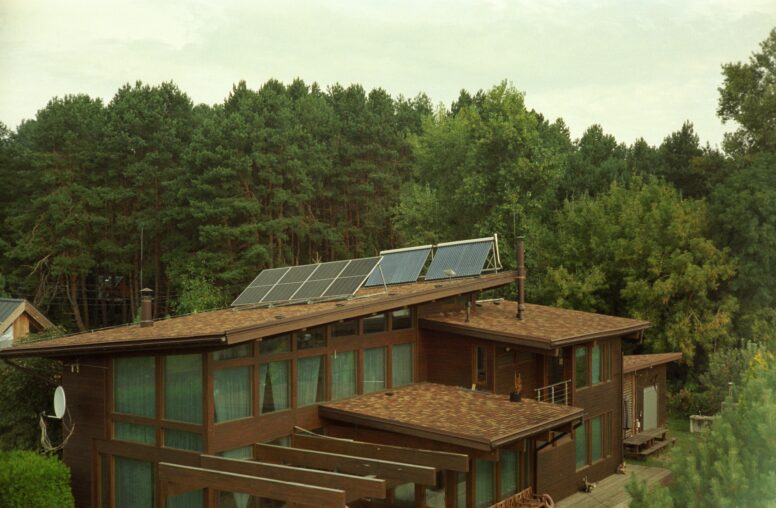Across Africa, a quiet revolution is unfolding, one powered by innovation, creativity, and a deep commitment to the planet. As climate challenges intensify and environmental issues threaten livelihoods, African entrepreneurs are responding with eco-innovation sustainable business models that protect the environment while driving economic growth.
From solar energy and recycling technology to green agriculture and water conservation, startups across the continent are redefining what it means to do business responsibly. This article explores how Africa’s green startups are leading the charge toward a more sustainable, inclusive future.
What Is Eco-Innovation?
Eco-innovation refers to the development of products, services, or processes that reduce environmental harm while creating social and economic value.
In simple terms, it’s innovation with purpose where creativity meets sustainability. Eco-innovative companies design solutions that:
- Reduce waste and emissions
- Promote renewable energy
- Support sustainable agriculture
- Encourage circular economy practices
In Africa, eco-innovation is not just a trend, it’s a necessity. With a fast-growing population and limited resources, the continent’s future depends on finding smarter, greener ways to grow.
The Rise of Green Startups in Africa
Over the past decade, Africa has become a hotspot for sustainable startups. Young innovators are using technology to solve some of the continent’s toughest environmental challenges.
Key drivers behind this growth include:
- Abundant natural resources: Africa’s vast solar and wind potential make renewable energy ventures viable.
- Youth-driven innovation: The average African entrepreneur is under 35 — ambitious, tech-savvy, and passionate about impact.
- Growing investor interest: Global and regional investors are now funding green-focused startups more than ever before.
- Government and NGO support: Programs like the African Development Bank’s Green Growth Initiative encourage eco-friendly business models.
Sectors Driving Africa’s Eco-Innovation Boom
1. Renewable Energy
Access to energy remains one of Africa’s biggest challenges but also its greatest opportunity. Startups are turning to solar, wind, and bioenergy to bring affordable power to communities.
Notable examples:
- M-KOPA (Kenya): Provides solar home systems to off-grid households through pay-as-you-go financing.
- d.light (Nigeria/Kenya): Offers solar-powered lanterns and appliances, reducing reliance on kerosene.
- ZOLA Electric (Tanzania): Brings decentralized solar power to rural communities.
These innovations not only reduce carbon emissions but also improve livelihoods and boost rural economies.
2. Sustainable Agriculture
Agriculture employs over 60% of Africa’s population, yet climate change threatens food security. Green startups are helping farmers adapt with eco-friendly practices and technology.
Examples include:
- Hello Tractor (Nigeria): A “Uber for tractors” model that helps smallholder farmers access affordable mechanization.
- Farmcrowdy (Nigeria): Connects investors with farmers to promote sustainable farming.
- AgriProtein (South Africa): Converts food waste into animal feed using insects — a brilliant example of circular economy in action.
These solutions increase productivity, reduce waste, and protect natural ecosystems.
3. Waste Management and Recycling
Waste is one of Africa’s biggest urban problems, but startups are turning trash into opportunity.
Innovative leaders include:
- Wecyclers (Nigeria): Encourages recycling in Lagos by rewarding households for collecting recyclables.
- Gjenge Makers (Kenya): Transforms plastic waste into durable building materials.
- Bôndy (Ivory Coast): Uses coconut shells to produce eco-friendly charcoal, reducing deforestation.
These businesses don’t just manage waste, they create jobs, improve sanitation, and promote sustainability in urban centers.
4. Water and Sanitation Innovation
Access to clean water remains a critical issue in many African regions. Startups are introducing creative solutions for purification, distribution, and conservation.
- Safi Organics (Kenya): Converts farm waste into organic fertilizer, reducing water pollution.
- Majik Water (Kenya): Extracts clean drinking water from the air an award-winning innovation.
- Water Access Rwanda: Provides safe water kiosks and filtration systems to rural communities.
Such efforts are life-changing, improving public health while preserving natural water sources.
The Economic and Social Impact of Eco-Innovation
Eco-innovation in Africa is doing more than protecting the environment — it’s creating jobs, empowering communities, and attracting investment.
- Job Creation: Green startups generate employment in technology, manufacturing, and agriculture.
- Investment Growth: Funds like GreenTec Capital Partners and EchoVC are increasingly supporting eco-driven businesses.
- Community Empowerment: Many startups operate in rural or underserved areas, giving people access to clean energy, water, and jobs.
According to the United Nations Environment Programme (UNEP), Africa’s green economy could create over 10 million jobs by 2030 if properly supported.
Challenges Facing African Green Startups
Despite progress, challenges remain:
- Limited access to funding and technical expertise
- Inconsistent government policies
- Poor infrastructure in rural regions
- Low consumer awareness of sustainable products
However, the growing global focus on climate action and sustainable development provides hope. With more partnerships and policy support, eco-innovation can scale rapidly.
The Future of Eco-Innovation in Africa
The future is bright and green.
Africa’s next generation of innovators is proving that sustainability and profitability can coexist. By leveraging renewable resources, digital tools, and community-driven models, green startups are not just fighting climate change, they’re building a new African economy rooted in innovation, resilience, and respect for the planet.
If properly supported through funding, mentorship, and policy alignment, eco-innovation could transform Africa into a global leader in sustainability by 2030.
Africa’s eco-innovators are showing the world that meaningful change begins with bold ideas. From recycling plastics to generating clean energy and reimagining agriculture, they are lighting the path toward a greener, more prosperous continent.
Supporting these startups means investing in Africa’s future, one that balances progress with preservation, and innovation with inclusion.

